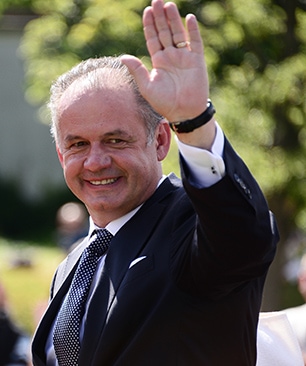Slovakia's new prime ministerPeter Pellegrini is struggling the escape the shadow of his predecessorwho was forced to resign after the murder of a journalist investigating corrupt politicians.
Slovakia has a new prime minister, former deputy prime minister for investments Peter Pellegrini. He was sworn in on March 22, after Robert Fico (PM 2006–2010 and 2012–2018) was forced to resign following the murders of investigative journalist Ján Kuciak and his fiancée on February 26.
The murders rocked Slovakia, prompting mass protests and focusing attention on alleged links between the ruling class and the Italian Mafia. President has been adamant that the government must work to regain voters’ trust. Pellegrini is essentially on probation, and early elections many want may yet take place.

Slovakia’s problems are not particularly economic—the Bratislava self-governing region is the sixth-wealthiest EU region, with purchasing power parity per capita income more than 180% of its regional average—and as a member of the eurozone, the country has attracted substantial foreign direct investment, notably into its auto industry. “Economic sentiment is strong and has remained so since the start of the crisis,” says Liam Carson, emerging-Europe analyst at Capital Economics. “Slovakia is the only Central European country where we expect GDP growth to strengthen this year, from 2017’s 3.4% to around 3.8%.”
However, the fast pace of change in this country has opened the door to the organized crime that Kuciak was investigating, which allegedly goes high into government. Pellegrini has promised to find Kuciak’s assassin and fight corruption, telling local media, “We will do everything to make Slovakia a successful country, a good place for living and a country we can be proud of.”
But as a long-time member of Smer, the senior party in the governing coalition, Pellegrini is seen as very close to the deposed Fico—who many fear will retain power as puppet master. Pellegrini will struggle to escape his shadow. Kiska rejected Pellegrini’s first proposed cabinet, relenting only after some key changes—including at the interior ministry, which investigates organized crime. In the coming weeks, Slovakia, and the rest of Europe, will be watching Pellegrini closely.



